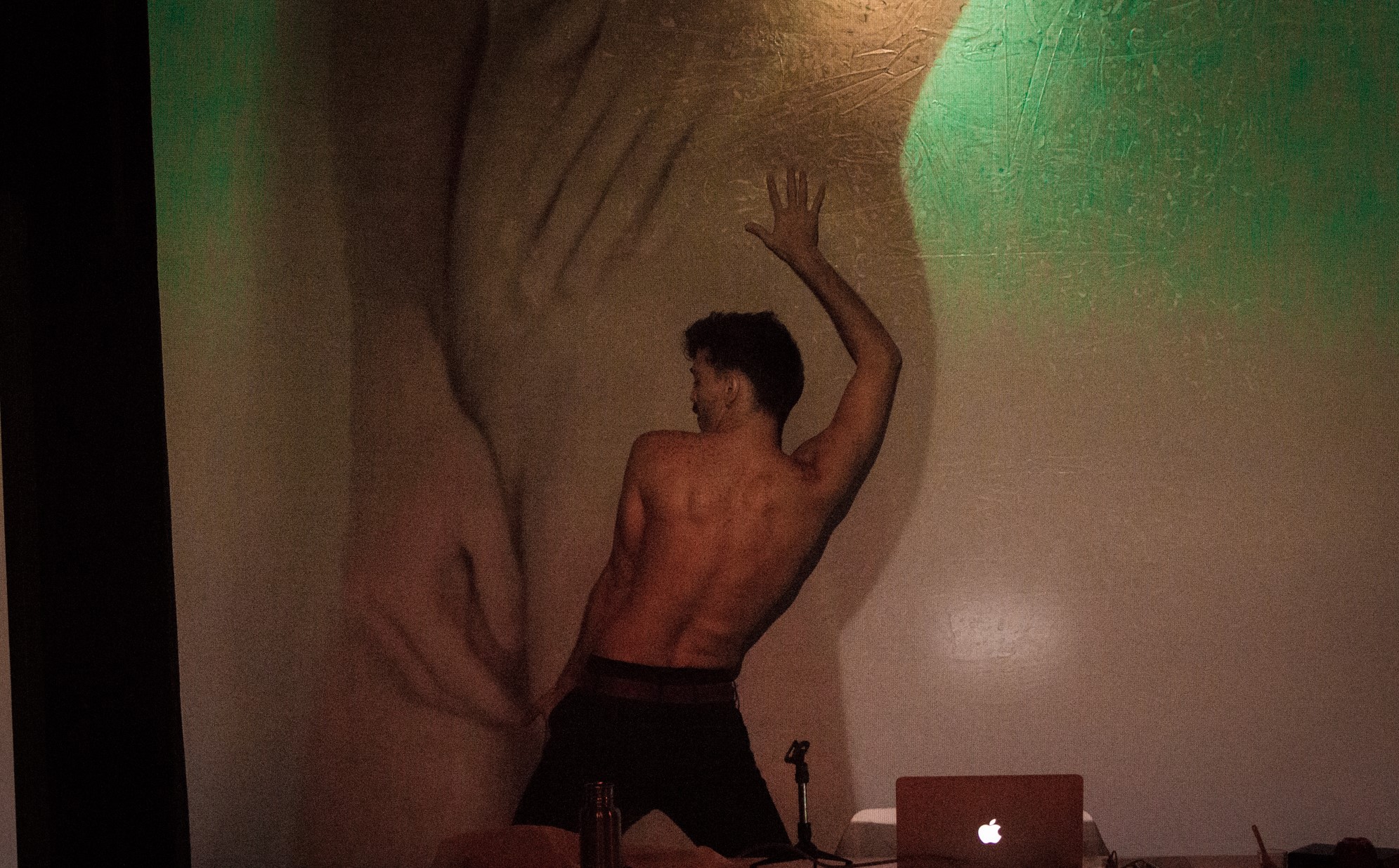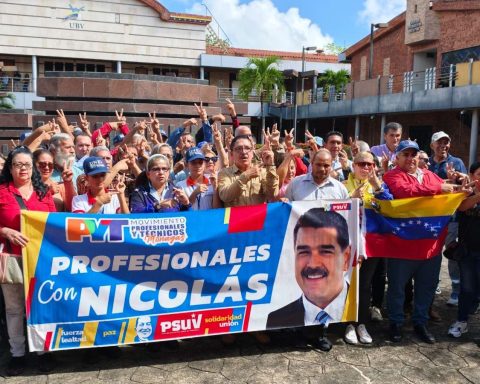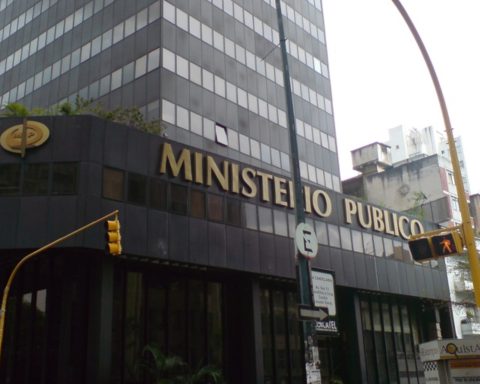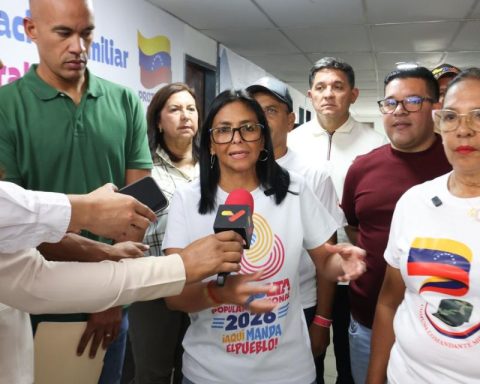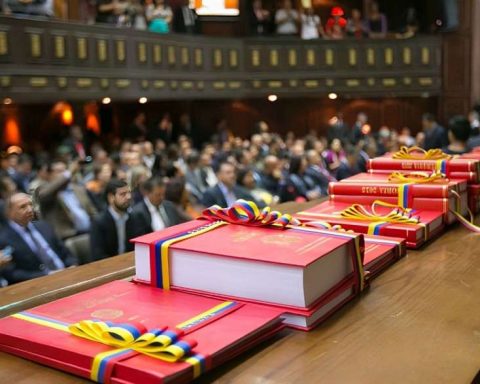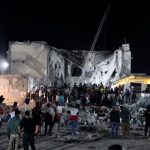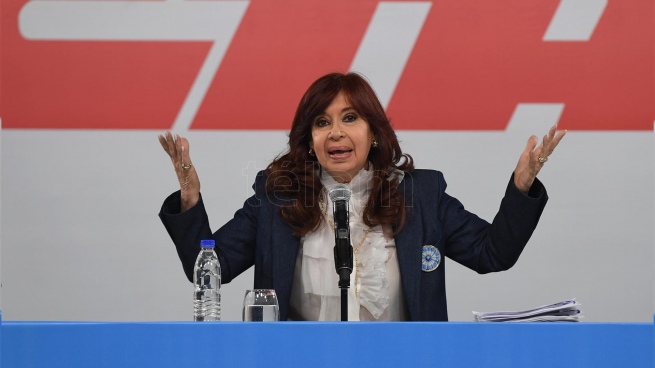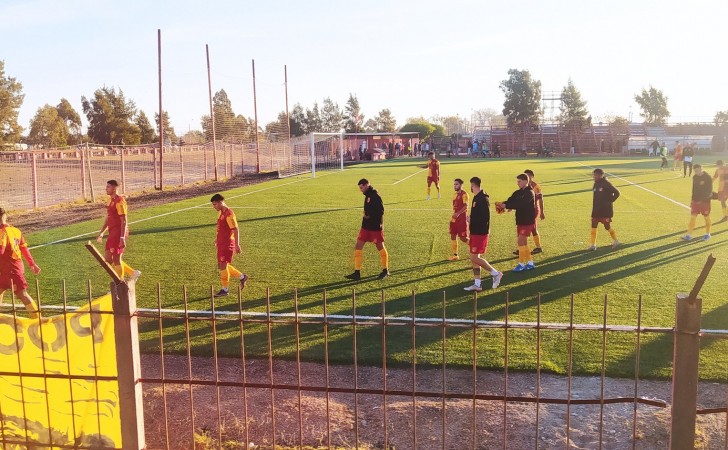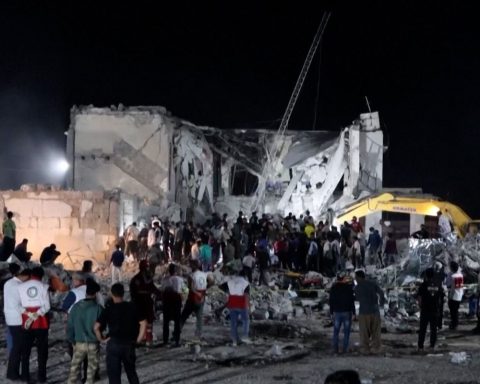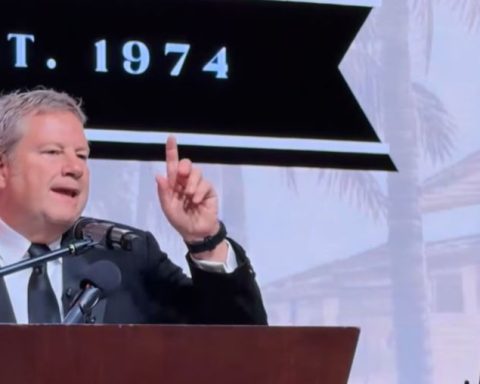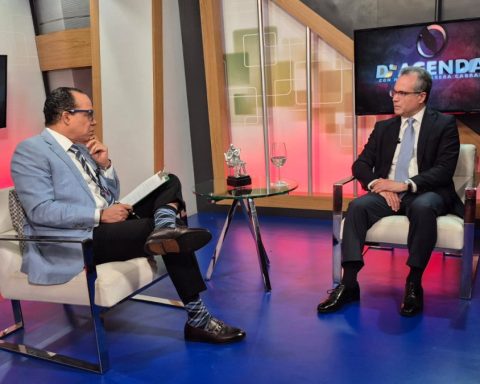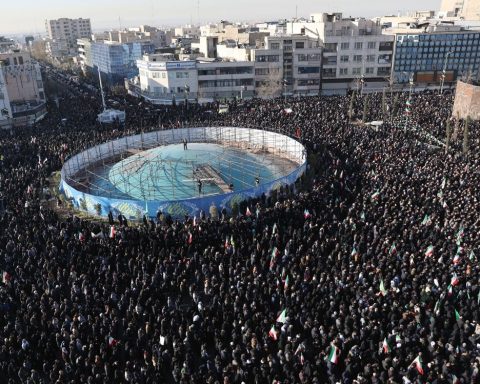
Three months ago, Deus Ex Machina he set up the “Campamento Blanco” at the Metropolitan University. They established intense work days to rehearse the three plays and prepare the premiere of a new piece that make up the offer of the “Cycle Sergio Blanco”, which began last Thursday at Trasnocho Cultural and marks the ninth anniversary of the theater group created by Rossana Hernández, Elvis Chaveinte and Gabriel Agüero.
It was on the fifth anniversary, in 2018, that they began to explore the self-fiction dramaturgy of Franco-Uruguayan Sergio Blanco. Thebes Land marked the beginning of a research work on his works that has not stopped since then. A year later they took to the tables daffodil’s wrath. And, although there was a small stoppage due to the pandemic in which they did virtual experiments, in 2021 they returned with Dusseldorf roar.
The cycle offers these three works on Fridays, Saturdays and Sundays in Trasnocho Cultural. On Thursdays he shows Cassandra, a guest montage. They also premiere a new work by Blanco: When you walk over my gravein which Daniel Jiménez, Elvis Chaveinte and Abilio Torres will perform, under the direction of Rossana Hernández, who has also directed Blanco’s three previous pieces.

They will have the presence of Agüero, who stars Narcissus’s wrath. The fact that she has emigrated to Mexico has not prevented her from continuing to work in Venezuela, explains Rosana Hernández. “We see it as something natural that it makes life outside and also here. There is a constant relationship. All the proposals are worked together, they are part of the online workshops. And in case Elvis or I decide at some point to work outside, we see it that way too. We have never seen the possibility of disregarding Venezuela; I think it’s impossible.”
With the support of the French Embassy, the playwright’s visit to the country for the first time was also contemplated; a complete cycle in his honor in which he would be present. He would see his works performed by Deus Ex Machina for the first time. Videos are not his thing, says Hernández, because “in theater recordings, unless you have a multi-camera production, thinking about recording, you can’t appreciate what can be in a montage.” Master talks were also scheduled.
But over the weekend, the group reported that “due to an unforeseen and serious health setback of a very close relative, Sergio Blanco has been unable to travel to Caracas.” “The playwright and theater director begs us to express to everyone his deep state of distress and apologizes for the inconvenience caused by this situation,” he added. the notice.

After Uruguay, Venezuela is the country where Blanco’s texts have been represented the most, which is why it became an important place for the author, he indicated in words prior to his arrival, broadcast by Deus Ex Machina. “Knowing me soon in Caracas is something that makes me very happy because I feel a deep desire to be able to embrace all the teams that have made my theater with the same intensity and beauty with which they have embraced my pieces,” he wrote.
He later added: “Being hosted by a theater that bears this name [Deus Ex Machina] It leads me to enroll in the conviction that despite the dark moment we are experiencing, we will soon find a new order that will bring justice, peace and freedom… Because as Martín Fierro teaches us and as we repeated so often during our South American dictatorships of the years seventy in the Río de la Plata: there is no time that does not end nor do I try that it does not cut”.
Blanco’s internationally recognized pieces were well received during his seasons in Venezuela. Thebes Land received three awards from the Venezuelan Association of Theater Critics (Avencrit): Best Actor for Kevin Jorges and Best Direction and Production for Rossana Hernández. Then Gabriel Agüero was recognized as Best Actor for his work in Narcissus’s wrath.
However, such success does not represent a pressure for the group, says Hernández. “For me each work is a different universe, although they are related to each other. Each montage has its needs and what I try to do is go with that text without considering that it has to be better than the previous one”.

A dramaturgy to ask questions
For at least three years, Deus Ex Machina handled the idea of presenting the Sergio Blanco Cycle. At the beginning of this year they finally finalized the project.
These texts intersect real stories of the author’s life, in which he represents himself, with fictional parts in which he becomes a character. The public is aware that they are going to be lied to, there is a tacit pact. Like current times, the works are not linear, but tend to jump, repeat, revise and add elements, constantly stimulating the viewer.
For Deus Ex Machina, assembling these pieces offers them the possibility of creating a stimulating space on a creative level, as well as a staging that generates constant questioning for both the actor and the spectator.

“We are among those who think that we do not have to conclude or sentence absolutely anything with the works. But to open up the possibility of asking about the matter we are dealing with and Sergio’s texts propose us to be in that place”, explains Hernández. “Working with these comebacks, as in the first opportunity, we did not finish closing everything; We keep asking ourselves things.”
It not only offers possibilities for the actors, but also for the spectators. “He doesn’t underestimate the audience,” says Hernández. “I think he considers them a fundamental element of the theatrical event and invites him to actively participate in what is taking place and considers that he is capable of doing so.”
He adds: “He’s not complacent, he’s not one to think ‘people like something banal, so that’s why I’m going to do something banal.’ He does not enter that game, quite the opposite. He thinks a lot about the actor and gives him opportunities to approach his work from another place.”
A theatrical offer curatorship
The three works by Sergio Blanco are part of a theatrical offer curated by the founders of Deus Ex Machina. For them it is not about presenting a show for the simple fact of creating a theatrical offer, but about communicating concerns, creating questions, encouraging dialogue. They founded the group in 2008, but it was not until 2013 that they found the work that expressed their proposal: saverio the cruel of the Argentinian Roberto Arlt.

From the beginning it was a rebellious group in the Venezuelan scene, both in the topics they dealt with and in the exploration of the staging. “At that time, we felt that many things were happening around us that needed to be told or talked about, but we couldn’t because sometimes we worked with groups that made remakes of successful works from many years ago or we saw works on the billboard that had nothing to do with what we were doing. it was happening,” recalls Hernández.
He adds: “We are not interested in developing our trade from comfort, from this position of generating material for the sake of generating material. We work from what we want to say, what we want to address. The important is that [las obras] resonates with us from some point of view. We don’t see theater plays only as a show, but also as a research space”.
And, as in its beginnings, they continue to have concerns about theatrical work, especially acting training in the country. “There are plenty of training workshops, but not all of them do it in a serious way. With the rigor and discipline that theater requires. Sometimes we see a lot of gossip, exploitation,” says Hernández, although he highlights the work of spaces such as La Caja de Fósforos, the Actors Gymnasium and the Festival of Young Directors of Trasnocho Cultural. “There is a great demand, but it is not enough. There are few and they can’t offer this all year round either,” he notes.

The group’s contribution to training began three years ago. “It is a way of transmitting our experience as a group that has developed in some difficult years and with this, in some way, to show the new generations that it is possible to do theater in Venezuela even in these circumstances,” says the director. They point to “an autonomy of the artist, that is not only one more instrument of the staging, but also that young people know that they are capable of generating their own work.”
In nine years, Deus Ex Machina has brought 13 works to the stage, eight of them by six international authors, three by Venezuelan playwrights and two original texts by Elvis Chaveinte. The first was thirteen roses (2015), which is the story of 13 young women imprisoned and shot in Franco’s Spain, inspired by the homonymous book by the Spaniard Carlos Fonseca. A year later they released cream and cream, which follows a pran who runs for president from prison. The latter was worthy of the Isaac Chocrón Award in 2016.

In plans is the production of another Chaveinte text, possibly next year for the tenth anniversary. “We are interested in Elvis’s playwriting work, precisely because of the issues he deals with and his reading of what happens to us as a Nation,” says Hernández.
Although they have worked on works that speak of the role of women in society (Mirjana and those around her), differences and intolerance (My son walks a little slower) or domestic violence (Emily), point further. They see themselves creating bridges between the Venezuelan theater and the international scene with their own space. “Deep down we want to talk about the anguish and concerns of contemporary human beings, which is the moment we are living; a moment that is by no means easy”.
